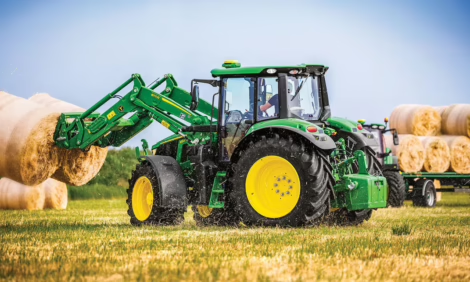



SIAVS: Brazilian officials downplay Weak Flesh, welcome new trade opportunities
Ahead of the official opening of SIAVS International Pork and Poultry Show in São Paulo, a press conference was held and attended by journalists from over 40 countries around the world. Ellen Hardy reports.
But officials were questioned repeatedly about operation ‘Weak Flesh’, a scandal which broke on March 17, 2017 and which implicated some of the country’s largest meat processing companies, as well as senior government figures. Meatpackers including JBS and BRF allegedly paid off inspectors to overlook practices including processing rotten meat, shipping exports with traces of salmonella and simply not carrying out inspections of plants. Brazilian President Michel Temer has also been charged with accepting bribes relating to JBS’s tax affairs.
Brazilian exports were temporarily suspended by the EU, US, China and elsewhere. Bans remain in place in some countries, representing 0.4% of Brazil’s export market. Referring to the scandal, ABPA vice president Ricardo Santin estimated that 250-300 million dollars of revenue did not enter Brazil as a direct result of the operation, with exports down 145,000 tons in the first quarter compared to the same period in the previous year.
However, ABPA focused on their strategy of transparency and clarification, repeatedly emphasising the good performance and potential of the industry overall, and the steps taken to address the problems. ‘We’ve never had a problem with quality,’ said Santin. ‘We’re not here to defend one company or one person in particular but we are here to ensure we can continue to export as we have always done.’
Officials also challenged the representation of Weak Flesh in the media, questioning descriptions of meat as ‘rotten’ rather than simply past its sell-by date, and the identification of some chemicals as cancer-inducing. They insisted that the incidents were isolated and dealt with swiftly. ‘We don’t see this as being a generalisation about the Brazilian inspection system, or indeed Brazil’s meat industry as a whole,’ said Rui Vargas, ABPA.
The theme of responsibly addressing the issues at stake was confirmed by the Minister of Agriculture, Livestock and Supply, Blairo Maggi, who spoke at the end of the conference. ‘In the next few months there will be a new world-leading model [for meat inspection] that is now being defined,’ he said. ‘We are going to make a very modern system… based on EU and US regulations.’ The new model would be launched in March 2018, he said.
Maggi is himself under investigation for corruption, relating to his tenure as governor of Matto Grosso state from 2003-2010. Questioned regarding the accusations, Maggi replied ‘I have all respect for the investigation process. My name came up within the so-called plea bargain, and I am completely comfortable with what has been said about me.’ He insisted that he was enthusiastic about promoting Brazil’s agricultural sector, but would not stay on in case of a loss of confidence by Brazilian farmers. ‘When I understand that this particular investigation hinders me from my position in the Ministry of Agriculture I will immediately resign my position,’ he said. ‘I am not committed to remaining in that post come what may.’
Trade deals with the UK and the US were also on the agenda. Questioned on Brexit, Ricardo Santin said that regarding the EU their mantra was ‘don’t touch our quotas,’ but that they were keen to have a good relation with the UK as the second largest importer of Brazilian chicken. Trade with Mexico as a result of uncertainty over its relationship with the United States was also mentioned. Roberto Jaguaribe, Vice President of the Brazilian Agency for the Promotion of Exports and Investments (Apex-Brasil), commented there was ‘no question that the decrease in expectation of easy access to the US market has raised possibilities for Brazil.’








